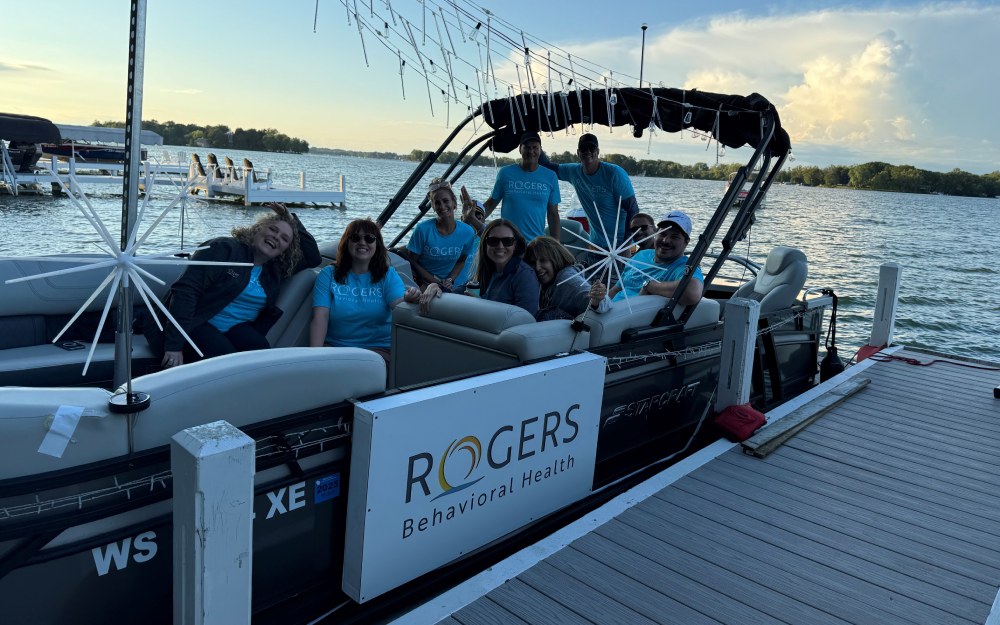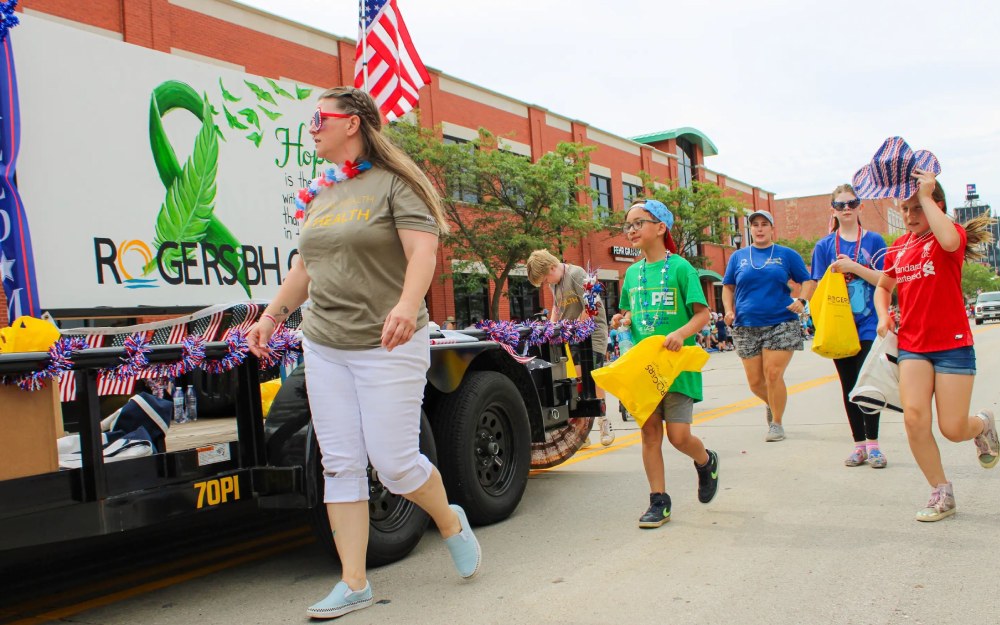
Evaluation process to show impact of Compassion Resilience Toolkits in schools, helping expand their reach
08/01/24 12:00:pm
In schools, education can be valuable for teachers, too, benefitting them as well as their students.
That’s what Rogers’ Community Learning and Engagement (CLE) team has found with WISE’s Compassion Resilience Toolkits, which help teachers build skills that can support them through the difficulties of their jobs. Now, an evaluation process will directly measure the toolkits’ impacts in schools to back their success up with data.
“We feel passionately about the Compassion Resilience Toolkits, and we’ve seen the positive impact,” says Emily Jonesberg, CLE program manager. “But it’s really important to have an evaluation process that shows the true effect a project is having. We want to be able to say we have hard data that support this resource so we can connect and share the toolkits more broadly.”
Right now, Emily says 150 school districts in Wisconsin and various other states, including Arizona, Kentucky, and Nebraska, have been trained on how to implement the Compassion Resilience Toolkits, which were made in partnership with the Wisconsin Department of Public Instruction (DPI) about nine years ago to help teachers build resilience.
“It helps create a road map for the kind of culture that organizations can create and maintain to promote wellbeing,” Emily says. “You can’t have individual well-being or even team wellbeing without looking at what a system is doing to support its overall culture.”
She says at a time when teacher turnover is high and many are leaving the industry altogether, compassion resilience is more important than ever.
“In my mind, we’re in somewhat of a crisis when it comes to our education system, and we need supports in place for our young people, which means we need supports in place for our teachers so they can be innovative, creative, caring, and compassionate,” Emily says. “Right now, many educators aren’t able to show up that way, and that is definitely going to have effects on our young people next year and for many, many years to come.”
Designed to help teams build cultures based in compassion, equity, and trauma-informed practices, the resources are divided into 12 different sections, covering a variety of topics from showing up compassionately for someone else in need to how to set compassionate boundaries grounded in realistic expectations.
“In order for educators to show up as their best selves for their students and support young people in reaching their full potential, educators have to take care of themselves first, and they have to feel supported by their colleagues and their team around them,” Emily says. “Teachers who are drained often do not give students their full attention and do not think creatively. They can even act in more stigmatizing ways towards the young people who they’re serving simply because they themselves are fatigued and burned out. They don’t have the capacity to get through some of these roadblocks. That’s why this resource is so crucial and how it ultimately connects back to the students.”
To participate in the evaluation process, Emily’s team is working to partner with three Wisconsin districts: one that’s urban, one that’s suburban, and one that’s rural. An external facilitator from UW-Madison’s Population Health Institute will help collect and analyze data. She adds that the strong partnership with DPI continues, with DPI partially funding the evaluation through Project AWARE funds.
With the benefit of data from the evaluation, Emily says they hope to expand the Compassion Resilience Toolkits in schools throughout Wisconsin and beyond.
“Now that we will have that data component in the next year or two, it will help grant us access to more schools across country,” she says. “It’s exciting to think about the ripple effect that this work will have and knowing that Rogers is out there attending to the well-being of others in a really positive, preventative way.”
CLE staff members facilitate WISE’s efforts to eliminate stigma and promote mental health support. Find more information about WISE and Compassion Resilience Toolkits here.





